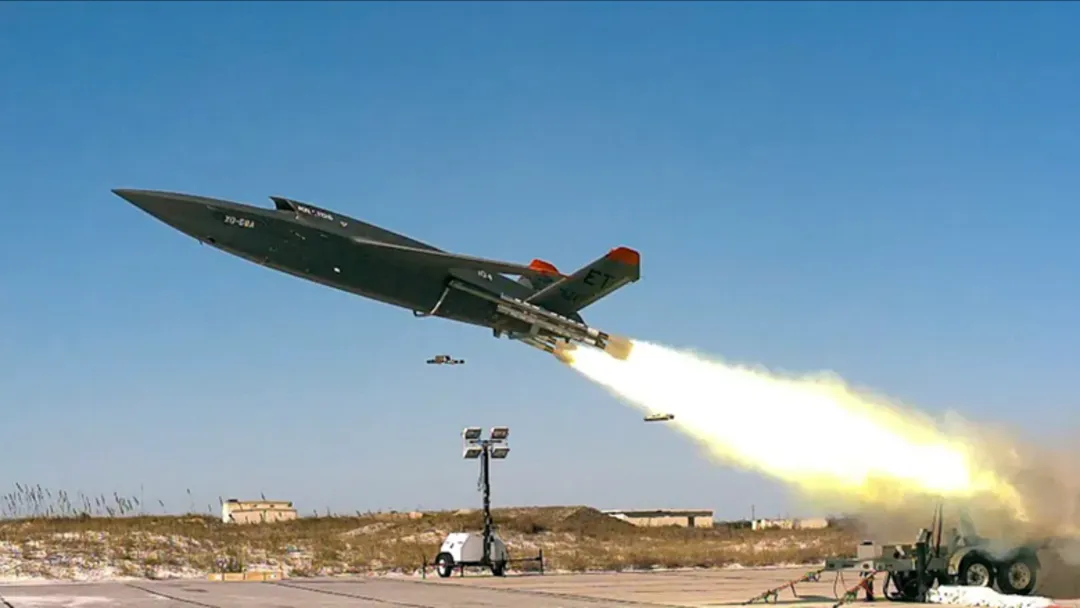Table Of Contents
In an era where technological advancements rapidly redefine the landscape of warfare, the integration of artificial intelligence (AI) into military applications represents a significant leap forward. One company at the forefront of this transformation is Kratos Defense & Security Solutions, renowned for developing the XQ-58A Valkyrie, an unmanned combat aerial vehicle (UCAV). This AI-enhanced stealth fighter jet exemplifies the potential of AI-driven innovations in modern military operations. As defense contractors continue to explore the capabilities of AI on the battlefield, the Valkyrie stands as a testament to the evolving synergy between human ingenuity and machine intelligence.
The Rise of AI in Military Applications
AI Integration and Technological Advancements
The XQ-58A Valkyrie is a notable example of how AI is reshaping military strategies. Developed by Kratos Defense, this stealthy UCAV is designed to operate autonomously alongside crewed aircraft, enhancing mission capabilities while minimizing risks to human pilots. The integration of AI allows the Valkyrie to perform complex tasks such as target detection, identification, and geolocation, which are crucial in high-stakes combat scenarios.
Recent advancements in AI technology have enabled the Valkyrie to execute collaborative missions with manned aircraft like the F-35, showcasing its ability to function as a “loyal wingman.” This capability underscores the potential of AI to augment human decision-making and operational efficiency in warfare, marking a pivotal shift in how military operations are conducted.
Affordability and Strategic Deployment
Kratos Defense has prioritized affordability in the development of the Valkyrie, positioning it as a cost-effective solution for high-risk missions. Priced at approximately $4 million per unit, with potential reductions at higher production rates, the Valkyrie offers a strategic advantage by allowing for rapid deployment and replacement. This cost efficiency makes it an attractive option for military operations where expendability is a factor.
The Valkyrie’s low-cost design aligns with modern military strategies that emphasize the need for scalable and adaptable solutions. As conflicts become increasingly complex, the ability to deploy multiple units to overwhelm enemy defenses becomes a critical advantage, reinforcing the importance of cost-effective unmanned systems.
Stealth and Operational Versatility
Design for Stealth and Evasion
The Valkyrie’s design features a blended wing-body configuration, trapezoidal fuselage, and swept-back wings, which collectively minimize its radar cross-section. This stealthy design enables the Valkyrie to evade enemy detection and penetrate hostile airspace, making it a formidable asset in contested environments. The ability to operate undetected enhances its effectiveness in executing high-risk missions and strategic strikes.
Flexibility in Launch and Recovery
Unlike traditional aircraft, the Valkyrie does not rely on conventional runways for takeoff and landing. It employs a rocket-assisted launch and parachute recovery system, allowing it to be deployed from various platforms, including shipping containers and trucks. This flexibility in launch and recovery methods provides significant logistical advantages, enabling the Valkyrie to operate in diverse and challenging environments.
AI-Powered Future of Warfare
Collaborative and Autonomous Operations
The Valkyrie’s AI capabilities extend beyond solo missions, enabling it to function within drone swarms and collaborate with human-operated aircraft. This ability to operate autonomously or under human supervision highlights the advanced nature of AI in enhancing military tactics. The Valkyrie’s role as a “loyal wingman” exemplifies the potential of AI to support and protect human pilots in dynamic combat scenarios.
Ethical and Strategic Considerations
As AI becomes more integrated into military operations, ethical considerations surrounding autonomous systems come to the forefront. The Valkyrie’s development prompts discussions about the implications of AI-driven warfare, including concerns about accountability and decision-making in combat. Balancing the strategic advantages of AI with ethical considerations remains a critical challenge for defense contractors and military leaders.
The XQ-58A Valkyrie represents a significant milestone in the integration of artificial intelligence into military applications. As defense contractors like Kratos Defense continue to innovate, the potential for AI to reshape modern warfare becomes increasingly apparent. The Valkyrie’s success serves as a testament to the transformative power of AI, offering a glimpse into a future where unmanned systems play a pivotal role in military operations. As military strategies evolve to counter emerging threats, the Valkyrie’s design and capabilities position it as a game-changer in high-risk scenarios, underscoring the importance of AI-driven advancements in the defense industry.


